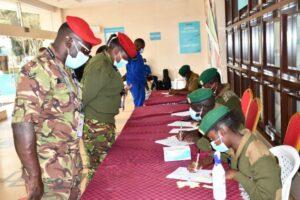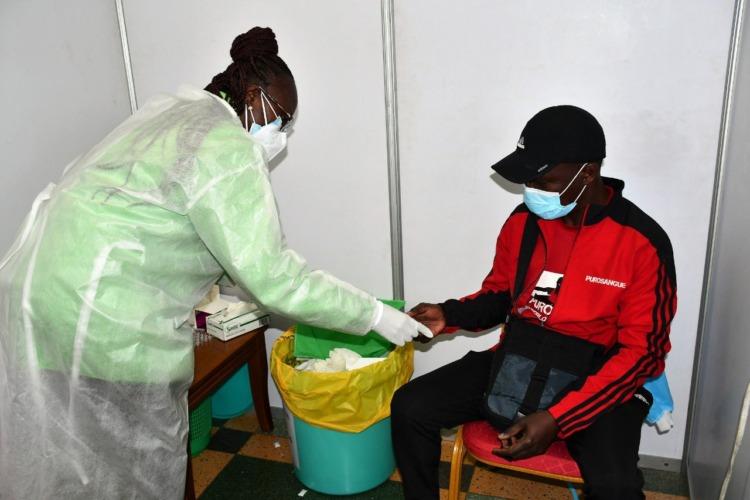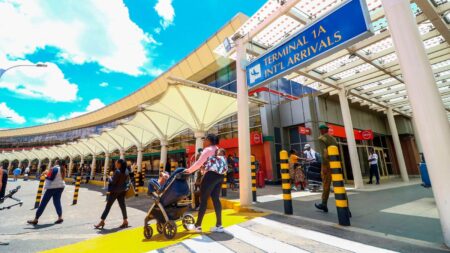Trade associations in Kenya have asked for immediate reopening of the economy and ending the COVID-19 containment measures issued by the Government to reduce the loss of livelihoods from the effects of the pandemic.
The 8 trade associations from across the retail, hospitality, transport creative, and entertainment sectors also backed the motion in Parliament urging the Government to concentrate on measures to revive the economy and vaccinate more people.
As the President extended the curfew and other containment orders, the High Court issued a determination that the orders issued to law enforcement agencies on the COVID-19 protocols are in breach of the Constitution.
At the same time, there is a motion in the National Assembly urging the Government to do away with all forms of lockdowns and concentrate on measures to revive the economy and vaccinate more people.
The associations also lamented the continued harassment of their members by police across the country, some of whom have taken to carting away products from bars and restaurants in addition to outright extortion.
Kenya’s president calls on African leaders to harmonise Covid protocols
Bar, Hotels and Liquor Traders Association Chairman Simon Njoroge urged the electorate to lobby MPs to support the motion in Parliament and proposed by Mvita MP Abdulswamad Nassir.
“MPs need to show that they care for the suffering of those hard hit by the pandemic by supporting the motion in the National Assembly urging the Executive to eliminate all forms of lockdowns, curfews and travel restrictions and replace them with economically friendly containment measures and vaccination campaigns,” he said.
He added: “We believe that the voice of the people’s elected representatives is the voice of the people and it needs to be loud and clear that we need progress and to move forward from the devastating effects of COVID-19 on the economy.”
Gachoka said that even as the motion is debated, the Government should consider opening up the economy and increasing vaccination campaigns to aid the recovery from the pandemic.
“We have seen this already in the matatu sector and the enforcement is ongoing. Most businesses operate the same way, taking loans from the same banks and repaying them the same way, and it’s time we began talking about how all Kenyans can be enabled to resume operating normally but safely,” he added.

Pubs, Entertainment and Restaurant Association of Kenya (PERAK) Nairobi chairman Frank Mbogo said that despite the issuance of a new set of protocols by the Tourism and Wildlife Cabinet Secretary and the clear statement that restaurants close at 9pm, harassment by the police is rife.
“These new protocols are meant to guide the hospitality sector’s operations as we work towards a resumption of operations, which will be aided by increased vaccination and the adherence to the protocols. Unfortunately, we have had an alarming increase in police harassment of bars, restaurants and other establishments over the past three weeks,” said Mbogo.
PERAK identified the areas where police harassment is most dominant as: Karen, Lang’ata, Kariobangi, Westlands in Nairobi, Free Area, Bahati, and Kiamunyi in Nakuru, Kisumu, Kiambu Town, Malindi and Watamu.
The association’s national chairman, Mike Muthami, said the 18 months of the pandemic have felt like 10 years for the sector and the sector feels it has been discriminated against.
The dawn of a new beginning: the African Continental Free Trade Area Agreement
“We have been the first industry to follow protocols and there is no reason why if we are following the protocol, we shouldn’t be allowed to operate normally,” said Muthami.
Samuel Mwangi, also known as DJ Stretch, said the shutdown of the entertainment industry that came with the pandemic has had a devastating effect on the lives of entertainers.
“Everywhere, everything is operating as normal. Supermarkets, matatus and other areas. What’s special about the hospitality sector, a vast majority of whom have been following the protocols diligently? We need to open the economy for the benefit of everyone. Let’s be fair across all sectors of the economy,” he said.
Bodaboda Association chairman Samuel Ng’ang’a said lifting the restrictions would enable a resumption of the 24-economy that benefits the sector the most.
He said banks have repossessed their members’ bodabodas because of the default of loans and more than 400,000 families have been affected as a result.
Cyrus Githaiga, the National Coordinator of the Market Traders Association, said the restriction of the hospitality sector has had a ripple effect on the fresh produce sector.
“Hotels and restaurants are the biggest consumers of fresh produce and when they are forced to shut down, we are some of the biggest losers. There has been discrimination even with vaccinations and we need this to end,” said Githaiga.











